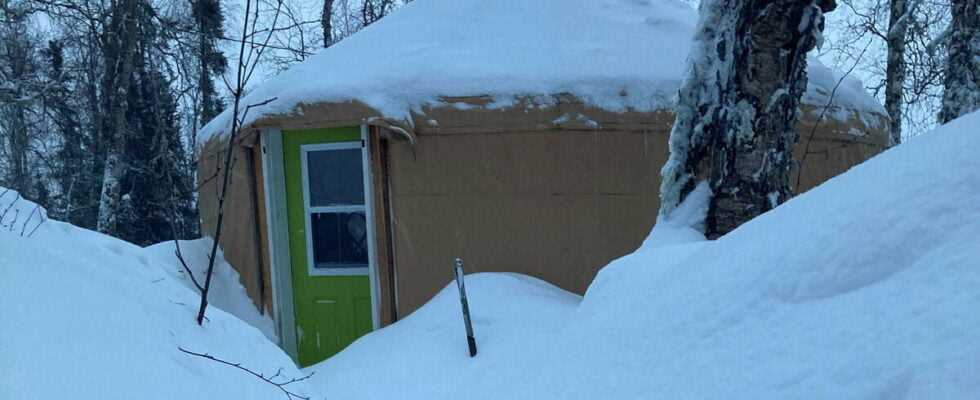The embodiment of a climate gone crazy, Alaska has experienced it all this week: record heat, snowstorms, torrential rains and a deluge of ice. These extreme weather conditions have wreaked havoc in cities across the northernmost state of the United States.
Large patches of ice block roads and make traffic impossible in Fairbanks, Alaska’s second largest city.
“We are facing a series of unprecedented winter storms. All available staff are working very hard but we may not be able to clear everything before this weekend ”, the authorities said on Twitter, warning of an apocalyptic situation with ice, an “Icemageddon”, contraction of Ice (ice) and Armageddon (apocalypse).
Warm cold
The state previously set a record temperature for December of 19.4 ° C on Kodiak Island in southern Alaska – warmer than southern California. In the city of Unalaska, temperatures topped 10 ° C for at least eight days this month, with a Christmas below 13.3 ° C, the warmest on record in Alaska.
In the process, torrents of rain poured into the interior, unheard of at this time of the year since 1937, before another drop in mercury, causing the massive formation of ice.
The state Department of Transportation has warned drivers that the roads will be covered with a thick layer of ice for days. “It is extremely difficult to remove ice once it has formed on asphalt”, reminded officials on Twitter.
“Exactly what is expected from global warming”
The mixture of heat and humidity has become more and more common in Alaska over the past two decades. In contrast to a cold and dry winter that normally characterizes the State, “this type of event, high humidity and very hot air, is exactly what is expected from global warming ”says Rick Thoman, climate scientist at the University of Alaska.
A study published in November in the journal Nature Communications predicts that arctic winters will experience more rain than snow by 2060/2070. Alaska will still be cold in winter – we expect it to be -29 ° C this weekend in Fairbanks – but the wet episodes will multiply, says Thoman.
In the American West, Washington State and California are also facing heavy snowfall – nearly five meters in places in the Sierra Nevada – and rains that have caused the cancellation of hundreds of flights, the blocking of roads and population evacuations facing the risk of flooding. At the same time, due to a historic drought, massive fires broke out in Colorado.
